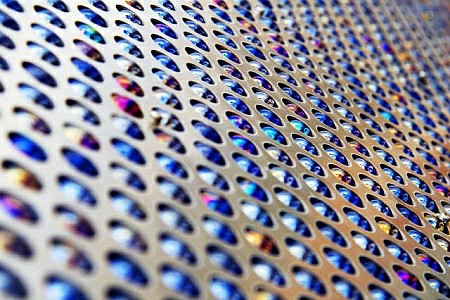[新译林版3Aunit2教学反思]工作已将近一个月了,唯一让我觉得有点欣慰的是:学生熟悉得差不多了,一个班中的绝大部分学生我能叫得出名字,但是在教学过程中仍是有许多问题存在。1.课堂纪律的掌控这个问题其...+阅读
Throughout the ages different ideas he been expressed about the working of the human brain. It is only recently, however, that science has begun to give us some idea of how the brain really works.
The Brain
The Most Powerful puter in the Universe
Man still has a lot to learn about the most powerful and plex part of his body —— the brain.
In ancient times men did not think that the brain was the centre of mental activity. Aristotle the philosopher of ancient Greece thought that the mind was based in the heart. It was not until the 18th century that man realised that the whole of the brain was involved in the workings of the mind.
During the 19th century scientists found that when certain parts of the brain were damaged men lost the ability to do certain things. And so, people thought that each part of the brain controlled a different activity. But modern research has found that this is not so. It is not easy to say exactly what each part of the brain does.
In the past 50 years there has been a great increase in the amount of research being done on the brain. Chemists and biologists he found that the way the brain works is far more plicated that they had thought. In fact many people believe that we are only now really starting to learn the truth about how the human brain works. The more scientists find out, the more questions they are unable to answer. For instance, chemists he found that over 100,000 chemical reactions take place in the brain every second. Mathematicians who he tried to use puters to copy the way the brain works he found that even using the latest electronic equipment they would he to build a puter which weighed over 10,000 kilos. Some recent research also suggests that we remember everything that happens to us. We may not be able to recall this information, but it is all stored in our brains.
Scientists hope that if we can discover how the brain works, the better use we will be able to put it to. For example, how do we learn language? Man differs most from all the other animals in his ability to learn and use language but we still do not know exactly how this is dine. Some children learn to speak and read and write when they are very young pared to erage children. But scientists are not sure why this happens. They are trying to find out whether there is something about the way we teach language to children which in fact prevents children from learning sooner.
Earlier scientists thought that during a man's lifetime the power of his brain decreased. But it is now thought that this is not so. As long as the brain is given plenty of exercise it keeps its power. It has been found that an old person who has always been mentally active has a quicker mind than a young person who has done only physical work. It is now thought that the more work we give our brains, the more work they are able to do.
Other people now believe that we use only 1% of our brains' full potential. They say that the only limit on the power of the brain is the limit of what we think is possible. This is probably because of the way we are taught as children. When we first start learning to use our minds we are told what to do, for example, to remember certain facts, but we are not taught how our memory works and how to make that best use of it. We are told to make noted hut we are not taught how our brains accept information and which is the best way to anise the information we want our brains to accept.
This century man has made many discoveries about the universe —— the world outside himself. But he has also started to look into the workings of that other universe which is inside himself —— the human brain.
NEW WORDS
puter
n. machine that stores information and works out answers 计算机
universe
n. 宇宙
plex
a. difficult to understand or explain 错综复杂的,难懂的
ancient
a. in or of times long ago 古代的;古老的
philosopher
n. 哲学家
philosophy
n. 哲学
involve
vt. cause to bee connected or concerned 使卷入
working
n. (usu. pl.) operation; action 运转,运行,活动
ability
n. 能力
exactly
ad. with plete connected or concerned 确切地;精确地
amount
n. 数量,数额
chemist
n. one who studies and understands chemistry 化学家
biologist
n. one who studies the life of animals and plants 生物学家
biology
n. 生物学
plicated
n. difficult to understand, plex 难懂的;复杂的
chemical
a. of chemistry
unable
a. not able
reaction
n. 反应
mathematician
n. one who studies and understands mathematics 数学家
equip
n. 设备,装置
kilo = kilogram
公斤,千克
recent
a. done or made not long ago 近来的
recall
vt. remember 记得;回忆起
differ
vi. be different (from)
mentally
ad. 智力上,脑力上
physical
a. of the body; of matter; of the science of physics 身体的;物质的;物理学的
potential
n. 潜力
limit
n. 局限,限度
PHRASES & EXPRESSIONS
put……to (good) use
use (in a profitable) (好好)利用
differ from
be dissimilar to 与……不同
pared to / with
in parison with 与……相比
make notes
take notes 记笔记
look into
examine 调查,观察
PROPER NAMES
Aristotle
亚里士多德
Greece
希腊
以下为关联文档:
Unit6 Whose dress is this本课时是Storytime的新授部分。主要话题是谈论化妆舞会的服装,呈现物品的所属关系。本节课教学思路清晰,能注重新旧知识的衔接,情景创设生动有效,学生在愉悦的氛围中感受、学习...

案例与反思6A Unit 1 Public signs 教学反思我们常用 情境教学法 进行英语课堂教学,形式多样,操练频繁,学生也能滔滔不绝地说一大段对话,教学效果似乎很理想。但是,仔细分析,我们不难发现,学生的交流有很大点的局限性。为了提...

流动的语汇,灵动的课堂——7AUnit1的教学反思一、案例分析:(Anylyses of the contents)本节课的内容是7A Unit1 Reading (1),旨在帮助学生学会介绍自己和他人,是将听、说、读、写结合在一起进行综合训练并重点突出提高学生...

3B Unit 5 Plus and minus 教学反思这次教研课所执教的是小学牛津英语3B Unit 5 Plus and minus。这节课要求学生在已经学习了数字120的基础上,继续观察并加强对单词词尾-teen/ -ty的发音练习,针对有难度的数词...

6A Unit 6 HolidaysPart BCE教学反思本单元主要是围绕 谈论节日里所做的事 这一话题展开的教学活动。很多节日都是学生生活中实实在在欢度过的,同学们都有非常丰富的亲身体验。在教学中,为了更好地调动学生的积极...

译林版三下Unit 6 What time is it近期,我们三年级的学生在学习Unit6 What time is it?一课,在设计第一课时Story time的教学过程中,我作了以下尝试:一、句型教学我们现在用的新版教材中,每个单元都有Story time...

教学案例:7B Unit 4 Finding your way Reading2By Deng Heng from Taicang No.1 Middle SchoolLearning aims:By the end of the class, students will be able to:retell the main idea of the passage according to...
4B Unit 5 Seasons story time教学案例教学目标:1. 认识、会读单词spring, summer, autumn, winter; warm, hot, cool, cold; season 2. 认识、会读每个季节对应的活动类词组fly kites go boating,eat ice cream,go...
Unit3学习单词活动名称:英语 Unit 3学习单词 活动目标: 1、学习单词star/rainbow. 2、让孩子体验英语活动的乐趣。活动准备: 1、英语书。 2、英语碟片。 3、单词图卡。活动过程: 一、Step one...



